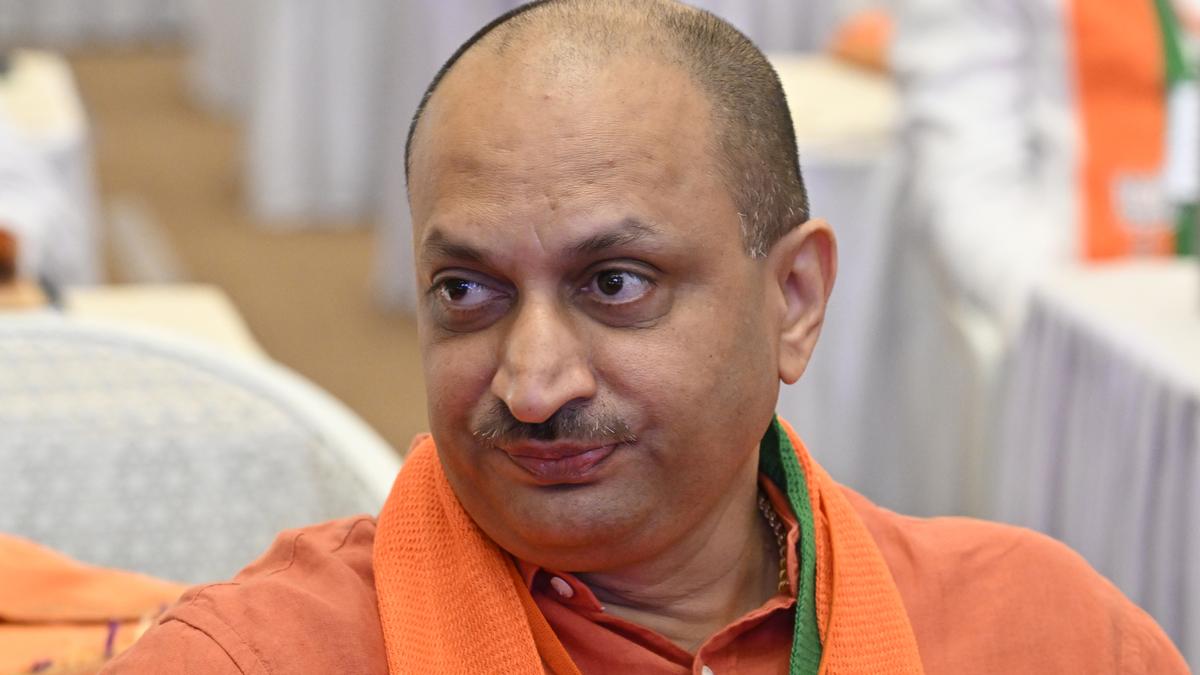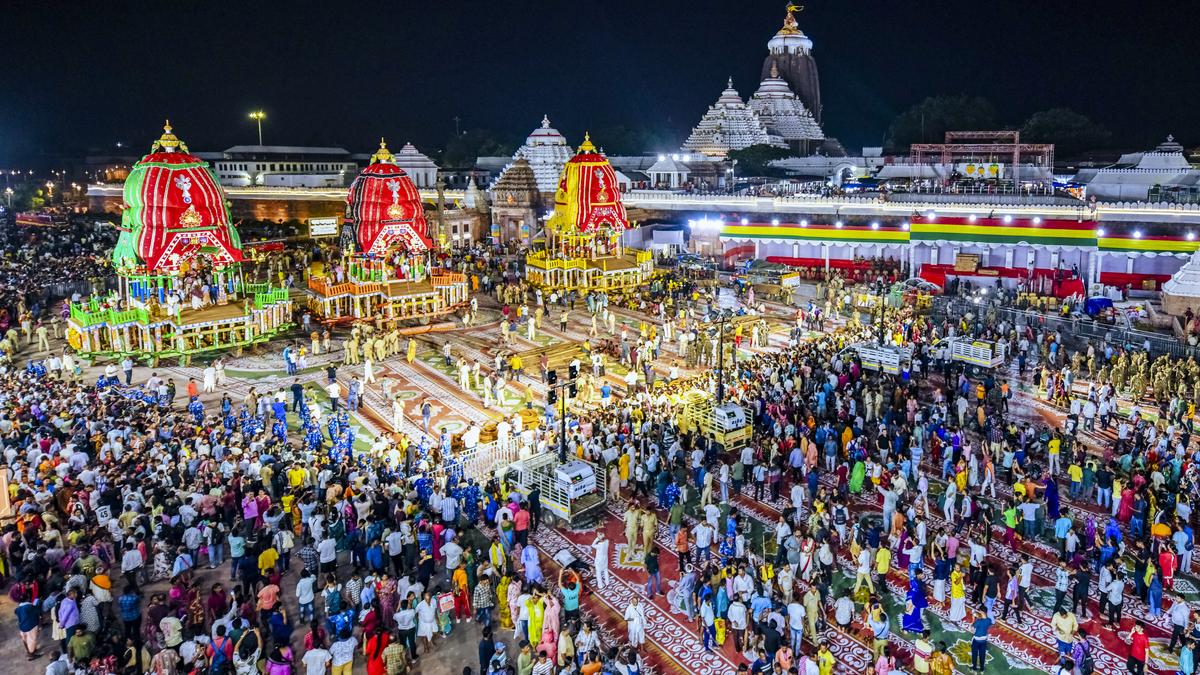ARTICLE AD BOX
Last Updated:June 27, 2025, 04:30 IST
The hill houses the famous Arulmigu Subramaniya Swamy Temple, the Hazrat Sultan Sikandar Badusha Dargah, and remnants of Jain heritage

Justices J Nisha Banu and S Srimathy delivered separate and divergent opinions on three of the petitions concerning animal sacrifice, usage of nomenclature, and rights of access and prayer in a disputed area near the hilltop dargah. File pic
In a significant judgment delivered on June 24, the Madurai bench of the Madras High Court gave a split verdict on a batch of six petitions involving religious and heritage rights at the historically and religiously significant Thiruparankundram Hill in Madurai.
Justices J Nisha Banu and S Srimathy delivered separate and divergent opinions on three of the petitions concerning animal sacrifice, usage of nomenclature, and rights of access and prayer in a disputed area near the hilltop dargah.
The Dispute
The hill houses the famous Arulmigu Subramaniya Swamy Temple (one of the six sacred abodes of Lord Murugan), the Hazrat Sultan Sikandar Badusha Dargah, and remnants of Jain heritage.
Several petitions were filed raising objections to practices such as animal sacrifice allegedly conducted by the Dargah, references to the hill as “Sikkandar Malai" instead of “Thiruparankundram Hill", and public Islamic prayers in the Nellithoppu area, claimed to be part of temple property.
The Opinions of the Judges
In the plea seeking a prohibition on animal sacrifice and serving of such food at the hilltop Dargah, Justice J Nisha Banu dismissed the petition, citing the historical coexistence of religious practices and noting that the Tamil Nadu law banning animal sacrifices had been repealed in 2004. She emphasised communal harmony and stated that the ritual was followed even in nearby Hindu temples.
However, Justice S Srimathy allowed the petition, holding that there was no evidence proving animal sacrifice as an essential or ritualistic practice at the Dargah. She called the recent pamphlets announcing animal sacrifices “mischievous" and directed that such activities be restrained unless the practice is judicially affirmed.
In another plea raising objections to the Dargah’s alleged rebranding of the hill as “Sikkandar Malai" and seeking a ban on animal sacrifices, Justice Banu again dismissed the plea, emphasising the hill’s multi-faith character and historical traditions. In contrast, Justice Srimathy allowed the petition, terming the usage of “Sikkandar Malai" as unlawful and unauthorised.
She noted that when the hill is named Thiruparankundram Hill, some persons claiming themselves as “Madurai Muslim United Jamath and Political Party Organisation" had issued a pamphlet that they were going to conduct a feast in “Madurai Thiruparankundram Sikandar Malai Hazrat Sikandar Badusha Pallivasal", which was definitely mischievous and an attempt to change the name of the hill.
In the plea filed by a member of the Hindu Makkal Katchi, the petitioner objected to prayer gatherings conducted by the Dargah in the Nellithoppu area near the temple. Justice Banu held that such rights had already been settled in favour of the Dargah through civil court judgments and dismissed the petition. Justice Srimathy, however, found that no established prayer rights existed in Nellithoppu and allowed the petition.
She held that the dargah did not have any such practice to conduct any prayer during Ramzan, Bakrid, or any other Islamic festival, and it was a new practice that could not be allowed.
Both judges unanimously dismissed a petition by a Jain religious head seeking to declare the entire hill as “Samanar Kundru" and a Jain site of national importance. The judges held that such declarations were outside the scope of a writ court and noted the issue was pending before the Supreme Court.
They also dismissed the plea, which sought better civic amenities like drinking water and lighting, holding that the authorities had already addressed those concerns.
In the plea filed by the managing trustee of the Dargah, both judges disposed of the petition with directions that authorities should not interfere with renovation or day-to-day administration of the Dargah, provided proper permissions were obtained.
A recurring reference in the judgment was to a 1920 civil court decree (OS No. 4 of 1920) and its affirmation by the Privy Council in 1931. The decree granted ownership of most of the hill to the temple while reserving Nellithoppu and the mosque area for the Dargah. This historical adjudication formed the basis of Justice Banu’s consistent position that the Dargah’s rights are well-established.
However, Justice Srimathy took the view that certain religious practices now asserted by the Dargah—like animal sacrifice and renaming the hill—were not covered by these old judgments and required fresh judicial scrutiny.
Due to the conflicting verdicts in the three petitions, the matter has now been referred to the Chief Justice of the Madras High Court for appropriate directions.

Salil Tiwari, Senior Special Correspondent at Lawbeat, reports on the Allahabad High Court and courts in Uttar Pradesh, however, she also writes on important cases of national importance and public interests fr...Read More
Salil Tiwari, Senior Special Correspondent at Lawbeat, reports on the Allahabad High Court and courts in Uttar Pradesh, however, she also writes on important cases of national importance and public interests fr...
Read More
- Location :
- First Published:
News india Madras High Court Delivers Split Verdict On Animal Sacrifice, Prayer Rights At Thiruparankundram Hill



.png)
.png)
.png)
















 4 hours ago
3
4 hours ago
3









 English (US) ·
English (US) ·